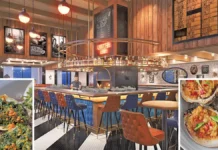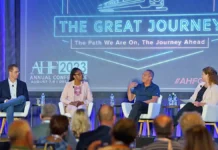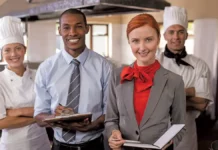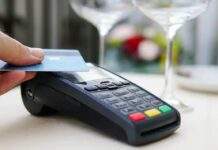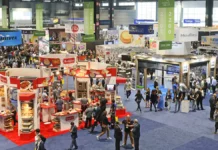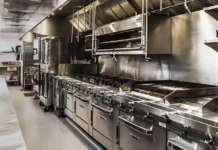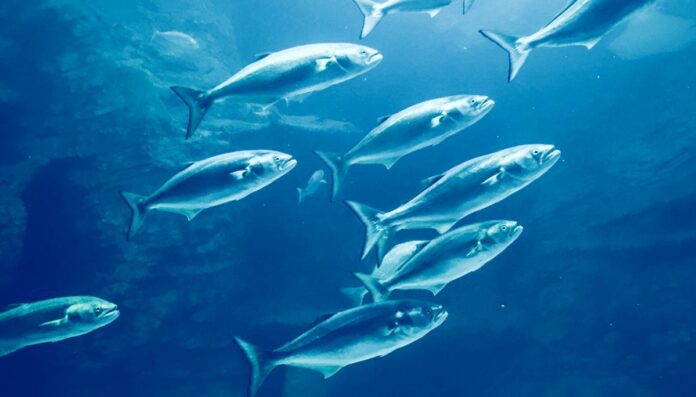
Article by Ryan Gallagher
If you’ve ever worked in a restaurant, you might understand some of the issues that surround the sustainability factor of serving at scale. Every hospitality business or event is burdened with these issues in some way. The main problems have to do with waste and pollution.
Most commonly, single-use plastics have been the first on the chopping block as they appear in landfills, our oceans, and in the form of air pollution when these products are manufactured. But even more recently due to supply chain issues, businesses are having a hard time finding the same plastic spoons (for example) that they’ve always ordered. So, to usher in education and a new solution, Oceanic Global has developed a program to help hospitality businesses worldwide.
 The program is known as the Blue Standard. The program assumes that there are habitual and unsustainable practices across events, hospitality, and tourism. The team at Oceanic Global began making recommendations to replace plastic cups, bottles, containers, and more. They made print and digital resources and guides to standardize the information. Soon enough, this turned into what they called the Blue Standard to serve and help players in the hospitality industry like restaurants, tourism businesses, and event venues.
The program is known as the Blue Standard. The program assumes that there are habitual and unsustainable practices across events, hospitality, and tourism. The team at Oceanic Global began making recommendations to replace plastic cups, bottles, containers, and more. They made print and digital resources and guides to standardize the information. Soon enough, this turned into what they called the Blue Standard to serve and help players in the hospitality industry like restaurants, tourism businesses, and event venues.
Enter Cassia Patel, who is the Program Director at Oceanic Global. Her professional background is in environmental engineering — 15 years worth of brain muscle that she flexes every day in her role to help hospitality businesses to become more eco-friendly.
“At Oceanic Global our focus is on driving scalable behavior change at the grassroots level, in policy reform, and also working with businesses to pull that industry lever and create change at scale,” said Patel. Her job is to shift “purchasing, procurements, and help businesses opt to eliminate single-use plastics, improve waste management, work directly with restaurants, hotels, and even food service providers for larger scale events and stadiums.”
For nearly two years, the emphasis on the human impact to Earth’s ecosystems has been thrown out the window due to COVID. Within a few months, the world began wearing single-use masks and gloves every day. So, for companies like Oceanic Global, the team has had to learn how to emphasize sustainability during an era where concern has shifted to “sterile” and “safe” environments.
“Last Summer we pulled together a cross-industry think tank with non-profits, hospitality leaders, individuals in tourism, and food safety to make guidelines for plastic-free reopenings,” explained Cassia Patel. “Our focus was to highlight how this can be achieved in a safe way and that you don’t have to compromise. We found out where we can reduce single-use plastic items, where we can safely achieve re-use, as well as self-serve systems in safe and sanitized ways.”
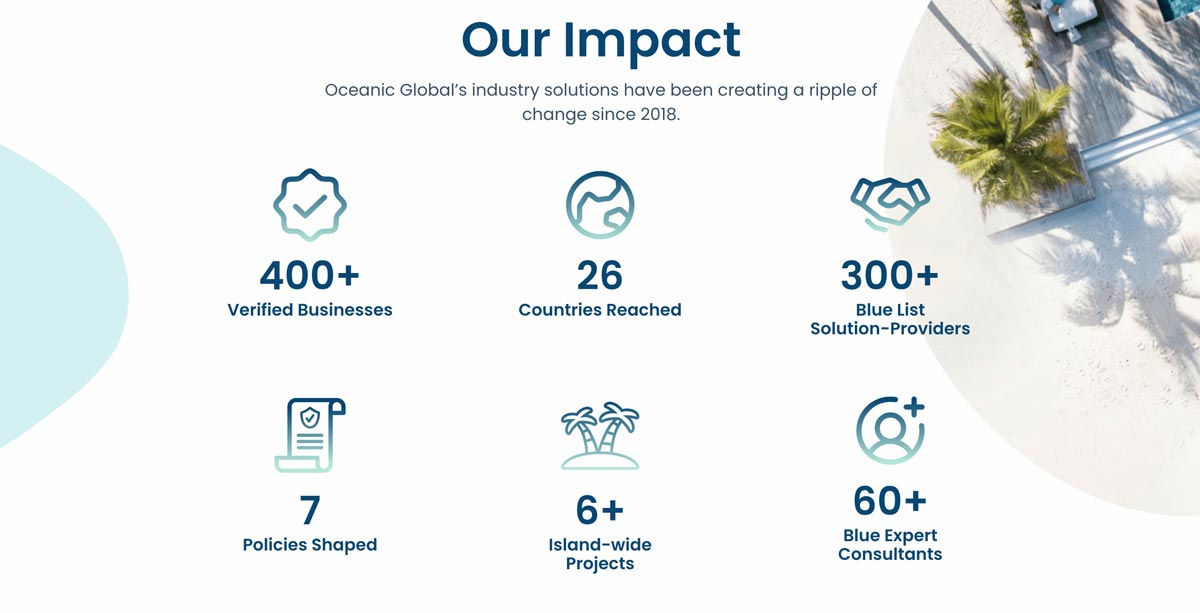 This was the first step to tackling the issue for the Oceanic Global team as well as the program directors at the Blue Standard.
This was the first step to tackling the issue for the Oceanic Global team as well as the program directors at the Blue Standard.
“At first, restaurants were hesitant due to ‘perceived safety’ or ‘safety theatre,’” explained Patel. “They wanted to make sure people felt safe to come back to eat. But at this point it feels like we’ve moved past that.”
As restaurants have become more involved and accepting of the Blue Standard by Oceanic Global, the team has seen registrations increase. The process starts with a one-time administration fee that pays for information from the Oceanic team, as well as the work they will do to help businesses scale their eco-efforts.
“We also take on pro bono projects and find financial aid for companies who can’t afford the administration fee,” added Zoe Reich, the Blue Standard Program Manager.
Once a restaurant or related business is registered for Blue, Oceanic Global will work with the business and can put them in touch with a local third-party Blue Consultant. This consultant’s job is to identify areas where it makes sustainable and financial sense to cut out single-use plastics, for example.
“The consultant walks the business through an assessment and creates an itemized spreadsheet about procurements like straws, cups, storage containers, and garbage bags,” explained Patel. “This is challenging because there aren’t always replacements to every item. But we go through the checklist and make recommendations. It’s custom to a small café or large stadium. There is a hierarchy of recommendations. We always recommend reusable first, then certain disposable items that are compatible with available waste management infrastructure.”
The leaders of the Blue Standard program work to highlight cost savings while also considering supply chain issues. In some cases, the program links companies together that might not have otherwise done business.
“We have a network of 300 sustainable suppliers and vendors with discount codes and friendlier pricing,” said Patel.
The Blue Standard program also helps hospitality businesses to create a benchmark for reusable items and the corresponding practices. In some cases, they will help restaurants to create in-house standards for re-use. In other cases, they will help businesses to employ third-party companies to set this reusable standard.
There are many companies popping up all over the nation. Oceanic Global is using their Blue Standard program to bring together this like-minded community to make a more sustainable hospitality industry.
Among those companies that are supporting the Blue Standard initiative are: Deliver Zero, Dispatch Goods, Inwit, Vessel, Turn, r.cup, and Muuse. In addition, the entrepreneurs behind CupZero, Dish Craft, GO Box and RepEATer all share Oceanic Global’s vision.
After the program leaders at the Blue Standard have onboarded the program participants, they will work toward an implementation plan to install a sustainable strategy into a restaurant’s everyday practices. At this point, program consultants will create custom marketing materials for the program participant to show off a “sustainability score” to their customer community.
Today, the process is moving along. By large, it’s become a rinse and repeat scenario for program participants and businesses who want to get involved—despite the custom aspects. At the end of the day, Oceanic Global hopes to standardize information about sustainability for the hospitality industry. Even more so, the team hopes that their efforts decrease the plastics found in the ocean as well as other forms of plastic pollution.
To learn more about Oceanic Global and Blue Standard, visit their website.




















